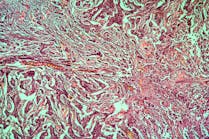Self-reported sexual and gender minorities (SGM) are twice as likely to report active epilepsy compared to non-SGM individuals, based on a National Institutes of Health (NIH) analysis of data from the population-based National Health Information Survey.
“Active epilepsy” means a person has been diagnosed with epilepsy and has had more than one seizure in the past year or are currently taking anti-seizure medication.
This study suggests that epilepsy could be added to the growing number of neurological health disparities experienced by SGM individuals and other minoritized communities. The potential causes of this increase in prevalence are unknown.
The authors note limitations of the study. The survey relies on self-reporting of SGM and epilepsy status, about which some may have been reluctant to report, even when responding anonymously. The survey data analyzed in this study are from 2022, the first year in which questions about current gender identity, sexual orientation, and sex assigned at birth were included.





